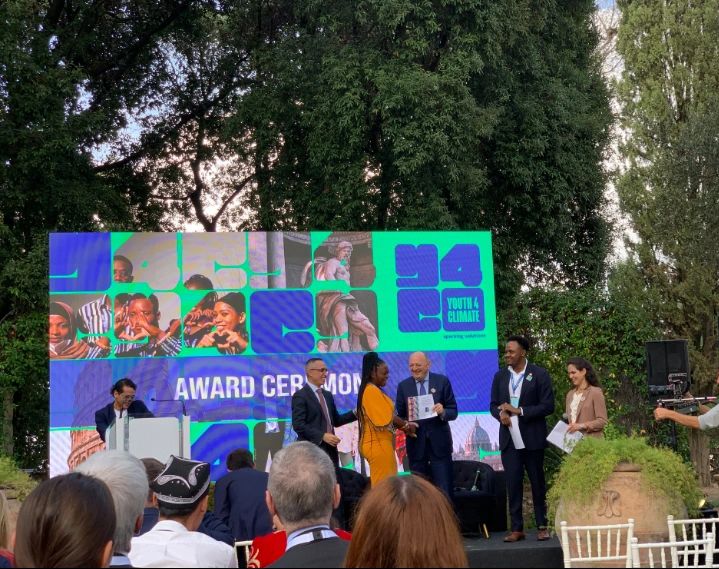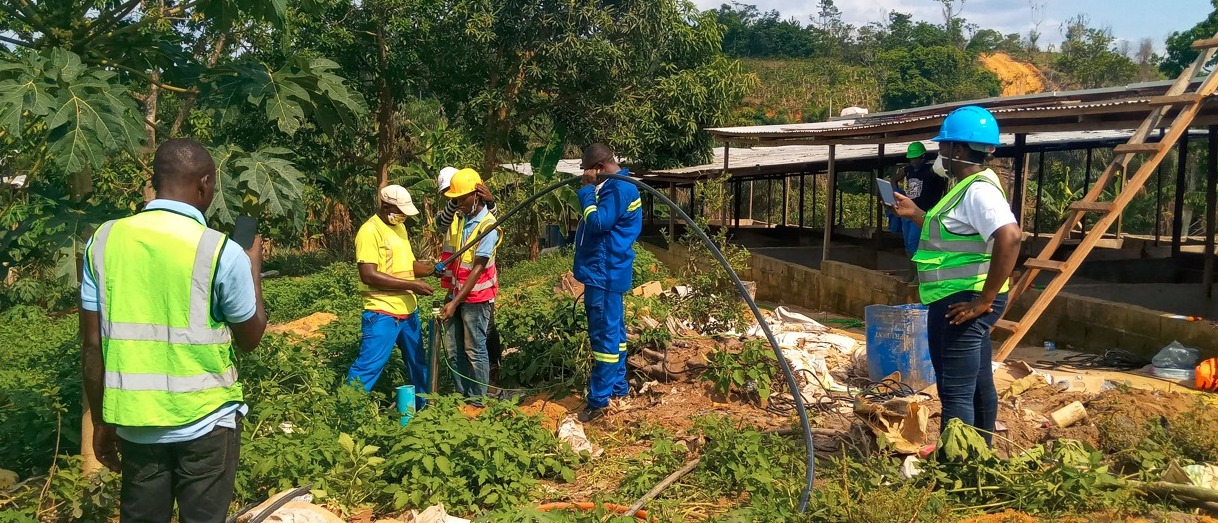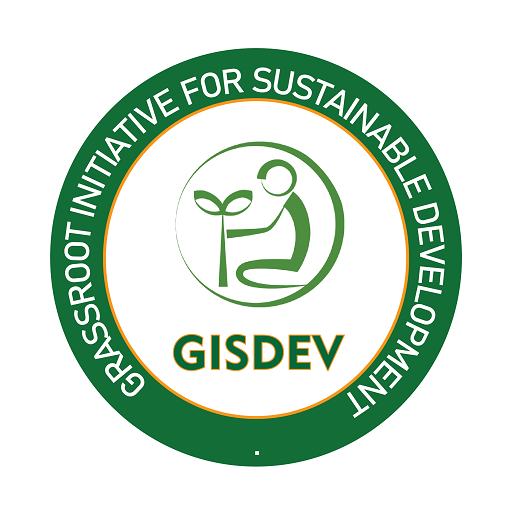At GISDEV, we are dedicated to the preservation and restoration of the 3800Ha degraded Abongphen Forest in the Bamenda Highland area, North West region of Cameroon. Our project focuses on combating deforestation, protecting endangered species like the Nigeria-Cameroon Chimpanzee, the rich forest biodiversity and promoting sustainable practices that benefit both the ecosystem and local communities.
Through a holistic approach that integrates conservation, restoration, community engagement, and sustainable development, we strive to create a harmonious balance between nature and humanity. We also celebrate the diverse interests and activities that enrich our lives, including football and beekeeping.
Reforestation: We Plant native tree species, fruit trees and environmentally friendly trees to restore degraded areas and enhance biodiversity.
Capacity Building: We provide comprehensive training on sustainable land and forest management, biodiversity and wildlife conservation and environmental stewardship.
Economic Empowerment: We equip community members with the tools and knowledge for alternative livelihoods such as beekeeping, fruit farming, and organic vegetable production.
Biodiversity Monitoring: We use technology and data-driven solutions to track species populations and ecosystem health.
Advocacy and Outreach: We Engage with Community members, stakeholders, raising awareness through sports, and advocating for conservation efforts.
At GISDEV, we are committed to creating a sustainable future for our planet. Through our Climate Awareness and Education program, we aim to raise awareness about the climate crisis and promote environmentally friendly ways of living.
Our program specifically targets children between the ages of 5 and 13, as we believe that educating and engaging young minds is crucial for building a greener future. By instilling a sense of environmental responsibility at an early age, we can empower children to become advocates for positive change in their communities.
Through a variety of engaging and interactive activities, we help children understand the impact of climate change and the importance of sustainable practices. We work closely with parents, teachers, and community leaders to create a supportive environment for sustainable living. We organize community events, seminars, and awareness campaigns to involve all stakeholders in our efforts.
By participating in the Green Future for Children Program, children not only gain knowledge about environmental issues but also develop a sense of responsibility towards our planet. Together, we can create a greener, cleaner, and more sustainable future for generations to come.
At GISDEV, we are dedicated to promoting clean and sustainable energy solutions for vulnerable communities. Our goal is to ensure that every household, school, and health facility has access to reliable and affordable clean energy sources.
Through our installation, monitoring, and maintenance services, we provide comprehensive support to help communities transition from fossil fuel-based energy systems to clean and renewable alternatives. We focus on the deployment of solar energy systems, which offer a reliable and environmentally friendly solution for lighting, cooling, cooking, and more.
We actively engage with communities to raise awareness about the benefits of clean energy and promote behavior change. We organize workshops, training sessions, and awareness campaigns to empower individuals and communities to embrace sustainable energy practices.
By switching to clean energy sources, communities can reduce their carbon footprint, improve air quality, and enhance their resilience to energy shortages. Moreover, clean energy access has a direct positive impact on health, education, and economic opportunities for vulnerable communities.
Join us in our mission to promote clean energy access for all. Together, let’s build a future powered by renewable energy and create a healthier and more sustainable world.
At GISDEV, we are committed to empowering smallholder farmers and promoting sustainable practices through our Biogas Systems Program. Our program focuses on providing clean and renewable energy solutions to farmers while fostering waste valorization and enhancing agricultural productivityproductivity within Tubah Sub Division.
Through our program, we work closely with smallholder farmers to install biogas systems on their farms. These systems efficiently convert organic waste into biogas, which serves as a clean and reliable energy source for various farming activities. By harnessing the power of waste, farmers can reduce their dependence on fossil fuels, lower energy costs, and contribute to a cleaner environment.
Additionally, our program promotes waste valorization by utilizing organic waste, such as animal manure and crop residues, as feedstock for biogas production. This not only reduces waste pollution but also creates a valuable resource for energy generation. Farmers can efficiently manage their organic waste, contributing to sustainable agricultural practices and a circular economy.
Furthermore, the biogas systems produce nutrient-rich biofertilizer as a byproduct. This biofertilizer enhances soil fertility and promotes healthy crop growth, enabling farmers to improve their yields and reduce the need for chemical fertilizers. By utilizing this biofertilizer, farmers can adopt sustainable farming methods and contribute to environmental preservation.
To ensure the successful implementation and operation of biogas systems, we provide training and capacity building programs to farmers. Through workshops and educational initiatives, we equip farmers with the knowledge and skills necessary for the effective management and maintenance of their biogas systems.
GISDEV is currently implementing an impactful tree planting project in the community of Kedjom Keku. This project is specifically designed to protect watersheds and promote forest regeneration in the area.
The tree planting program plays a vital role in preserving the health and sustainability of watersheds. By strategically planting trees along water bodies and in vulnerable areas, we aim to prevent erosion, improve water quality, and maintain the natural flow of water. This not only benefits the local communities who depend on these water sources but also contributes to the overall ecological balance of the region.
Forest regeneration is another critical objective of our tree planting project. We recognize the importance of restoring and expanding forested areas to combat deforestation and its detrimental effects. By engaging the community in tree planting activities, we actively involve them in the restoration process and raise awareness about the significance of forests in mitigating climate change, preserving biodiversity, and providing essential ecosystem services.
Our project goes beyond planting trees; it also includes capacity building and community engagement initiatives. We conduct training sessions and workshops to educate local community members about sustainable forestry practices, including tree care, agroforestry techniques, and the long-term benefits of forest conservation. Through these activities, we empower the community to take an active role in nurturing and protecting the newly planted trees.
We firmly believe that community involvement is pivotal in the success and sustainability of any environmental project. Therefore, we foster community engagement through collaborative platforms, such as community-led nurseries and tree planting campaigns. These initiatives not only strengthen the bond between community members but also create a sense of ownership and responsibility towards the preservation of their natural resources.
Join us in our ongoing tree planting project in Kedjom Keku and be a part of the positive change we are creating. Together, let’s protect watersheds, regenerate forests, and build a more sustainable future for generations to come.
At GISDEV, we are committed to empowering smallholder farmers
At GISDEV, we are always at the forefront of using technology to enhance agricultural practices. Our IoT for Irrigation project in Tubah is revolutionizing how farmers manage water resources and optimize irrigation techniques for improved crop productivity. By empowering farmers to harness this technology, we are taking irrigation to the next level.
The Internet of Things (IoT) refers to a network of interconnected devices and sensors that gather and exchange data. In our project, we deploy IoT-enabled sensors throughout Tubah’s agricultural fields to monitor essential parameters like soil moisture levels and weather conditions in real-time. This real-time data empowers farmers to make informed decisions about their irrigation practices, ensuring that crops receive the precise amount of water they need at the right time.
Our precision irrigation approach has several advantages. Firstly, it minimizes water waste by providing farmers with accurate information about the moisture levels in their fields. This not only conserves water but also reduces the strain on local water sources. Additionally, by optimizing irrigation practices, farmers can save energy and reduce their environmental footprint.
Furthermore, our IoT system allows farmers to maximize crop yields. With real-time data on soil moisture and weather conditions, farmers can ensure that their crops receive the optimal amount of water for growth and development. This promotes healthier plants, reduces water stress, and improves overall crop productivity.
Data-driven decision making is another key benefit of our IoT for Irrigation program. Farmers have access to a user-friendly interface that presents them with valuable insights and recommendations based on the data collected by the IoT sensors. This enables farmers to make informed choices about irrigation, crop management, and resource allocation, leading to more efficient and effective farming practices.
At GISDEV, we are committed to harnessing the power of the Empowerment Ripple Effect to drive sustainable change within communities. Our unique strategy begins with identifying the unique needs of community members, which serves as a foundation for our initiatives. We then focus on mobilizing, connecting, and empowering individuals and community structures, aiming to create a ripple effect of empowerment that extends far beyond our direct beneficiaries. By empowering individuals and fostering a sense of shared responsibility, we believe we can create a lasting impact and promote positive change within the broader community.


